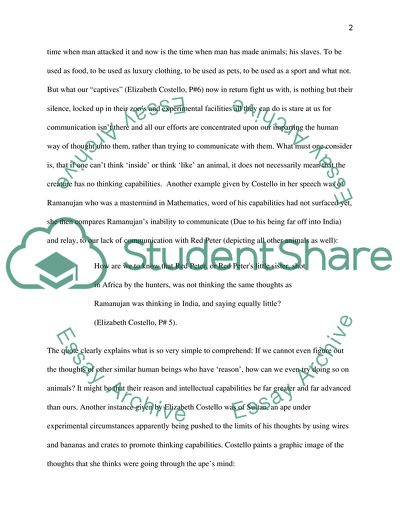Cite this document
(“Elizabeth Costello Essay Example | Topics and Well Written Essays - 1500 words”, n.d.)
Retrieved from https://studentshare.org/literature/1563862-philosophy
Retrieved from https://studentshare.org/literature/1563862-philosophy
(Elizabeth Costello Essay Example | Topics and Well Written Essays - 1500 Words)
https://studentshare.org/literature/1563862-philosophy.
https://studentshare.org/literature/1563862-philosophy.
“Elizabeth Costello Essay Example | Topics and Well Written Essays - 1500 Words”, n.d. https://studentshare.org/literature/1563862-philosophy.


